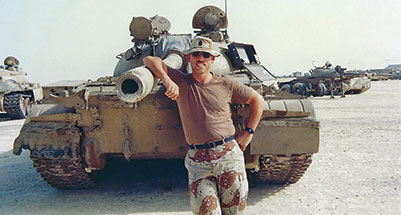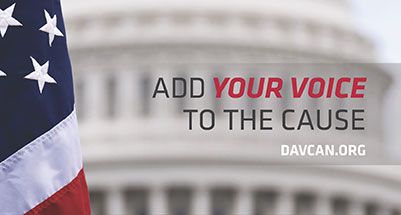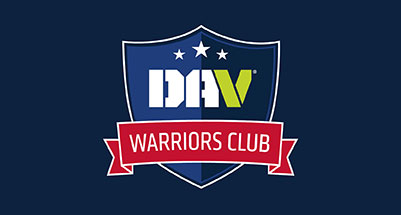 Helen Keller once said, “Life is either a daring adventure, or nothing.”
Helen Keller once said, “Life is either a daring adventure, or nothing.”
She was making an ardent point that life can be scary and uncertain, but it is always an adventure. As a person who learned to thrive despite seemingly insurmountable disabilities, Keller believed there was always a reason to live simply because life is worth living.
There is no question that an epidemic has settled over the veteran community—suicide. The last report from the Department of Veterans Affairs stated an average of 20 veterans die by suicide every day, a number everyone can agree is 20 too many.
There have been many instances in which DAV members have intervened to help stop a fellow veteran from taking his or her own life—and it’s something we must all be on the lookout for if we hope to end this tragic trend.
The question is, what can we as DAV members do to put a stop to this?
The first thing we have to do is understand that it affects all of us as a community, regardless of age, race, gender or era of service. This is a veteran problem. If your chapter serves a limited demographic, there’s a chance you may be missing out on an opportunity to help a wider group of veterans. Outreach to all veterans is a critical component of what we do, and an important part of helping to prevent suicide.
The Departments of Veterans Affairs and Defense have both put greater emphasis on suicide prevention training in the last few years, incorporating new training and awareness campaigns. We could all benefit from some of the simple principles being shared by DoD—one of the most important being the acronym “ACE,” which stands for Ask, Care and Escort.
- Ask – If and when you encounter someone you believe may be considering suicide, engage with them and ask the question directly: “Are you thinking about suicide?” or “Are you thinking about killing yourself?”
- Care – Show the person you are concerned for their well-being, stay with them or get someone to them as quickly as possible. Stay on the phone with them, grab a cup of coffee and just be there for the person who is thinking about taking their own life.
- Escort – Take the person to a place where they can receive professional care as quickly as possible, ideally the nearest hospital. You can also call the Veterans Crisis Line at 800-273-TALK (then press 1) or text 838255 to get immediate help, or visit veteranscrisisline.net to find additional resources.
VA also recently announced a new training method intended to help those who serve veterans better identify and assist at-risk individuals, called “SAVE” (Signs of suicide, Asking about suicide, Validating feelings, Encouraging help and Expediting treatment).
The model is very similar to DoD’s “ACE” strategy, relying on the presence of mind, compassion and action of individuals to help prevent a tragedy. Applying either of these strategies may save a life.
Keep in mind one very important thing—it can be extraordinarily difficult to manage feelings of guilt if, in the end, you are unable to provide the necessary assistance in these situations. But if someone takes their life by suicide, it is not your fault, it is a choice they made. What matters is that you did all you could to help let that person know you care, and that you did your best to get them help.
If you are in a crisis or thinking about suicide, we encourage you to seek help. Go to the emergency room of any hospital, or—again—call the Veteran Crisis Line at 1-800-273-8255 and press 1. Suicide is never the answer. It is a permanent solution to a temporary problem. If you’re a veteran in crisis lean on your brothers and sisters for support, and remember DAV is here to help.






